8 Reasons Why Spider-Man: Across The Spider-Verse Is The Superior Multiverse Movie Compared To The Flash
If I have a nickel for every superhero movie released in summer 2023 that tells a story about a guy with power traversing the Multiverse to save their loved ones, I would have two nickels, which isn’t much but it’s weird that it happens twice. Both Spider-Man: Across the Spider-Verse and The Flash premiered this summer at almost the same time, with the former released a month earlier. Both movies also tackle the concept of the Multiverse, with Miles Morales and Barry Allen both going through different timelines and dimensions.
However, despite these similarities, one film is just simply better than the other, and the superior one is Spider-Man: Across the Spider-Verse. The result is clear: while Sony’s animated title becomes a box office sensation all around the world, grossing over 566 million worldwide and still counting, The Flash is performing below par, with the theaters number dropping a devastating 72% in its 2nd weekend, and receives mixed reviews from the audience. Why do two similar movies about the Multiverse have such night and day outcomes? Let’s find out.
#1. The Flash’s Multiverse is sloppy and full of problems.
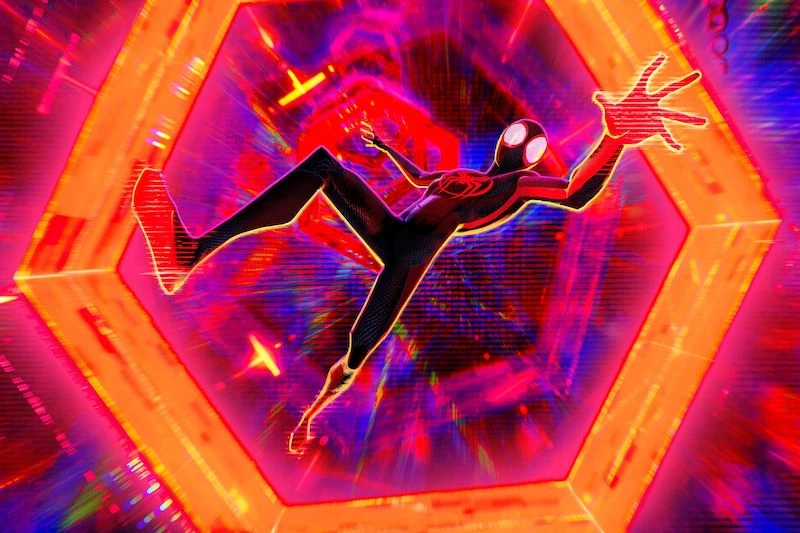 Source: Sony Pictures Entertainment
Source: Sony Pictures Entertainment
Let’s start by addressing the elephant in the house: The Multiverse. Across the Spider-Verse did so well handling this complicated matter: by simply expanding what has been done in the first film, and then introducing the concept of Canon events in the second.
The animated movie has thoroughly explained the tragic events that happened in each Spider-Man’s life, such as Uncle Ben or Captain Stacy’s death, and the effect they have in keeping the flow of the Multiverse, and how it will play out the events in the sequel, Beyond the Spider-Verse. Each sequence in the movie connects seamlessly, making its Multiverse much more solid and interesting to watch.
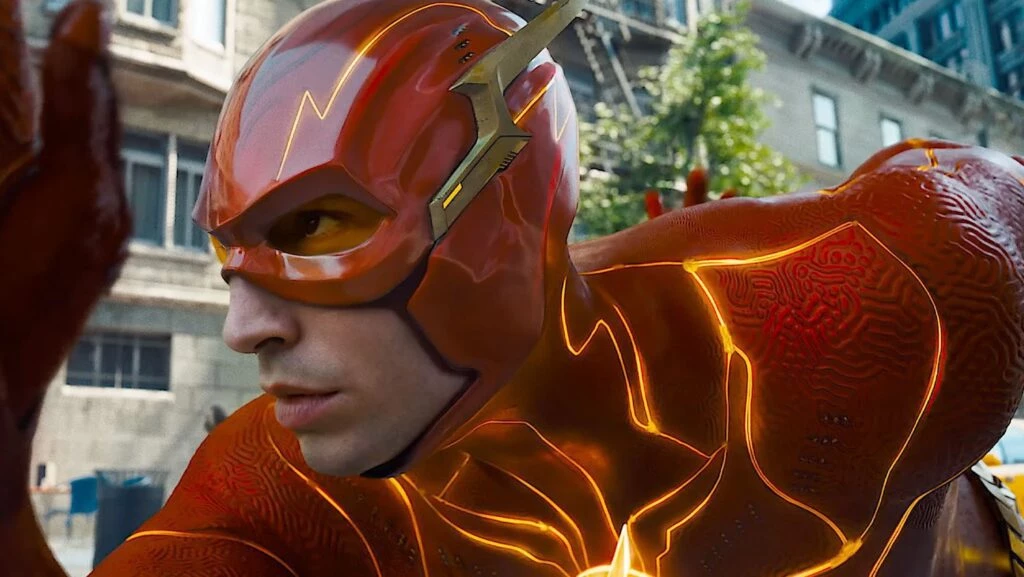 Source: DC Studios
Source: DC Studios
While Sony has done well to portray its vast yet meaningful Multiverse, all The Flash did was barely touch its surface. The Multiverse in The Flash is affected due to Barry Allen’s action of coming back to the past, and the movie shows a bunch of dimensions collapsing on their own as a result, but none of these are memorable enough for the audience.
The concept behind the Multiverse and its corrosion is also very vaguely explained by the movie, which makes it a bit confusing for anyone who hasn’t read Flashpoint. The Flash hasn’t done badly, but Across the Spider-Verse has set a very high ceiling for the Multiverse genre that the DC film can’t keep up.
#2. Spider-Man: Across the Spider-Verse handles their variants way better.
 Source: Sony Pictures Entertainment
Source: Sony Pictures Entertainment
In Across the Spider-Verse, as a result of exploring the Multiverse, we got introduced to the vast world of Spider Society, with countless versions of the Web-Slingers crawling around. Sony has done very well to give some of these variants enough spotlight to shine, such as Pavitr Prabhakar, Hobie Brown, and Miguel O’Hara while not straying too far from the main storyline.
The other side variants like Spider-Cat, Spider-Byte, or Spider-Rex, while their screen time is brief, still manage to impress us with their appearance. One more notable aspect of how well the animated film uses the different versions of Spider-Man: they were used to complement the main plot, not to replace it.
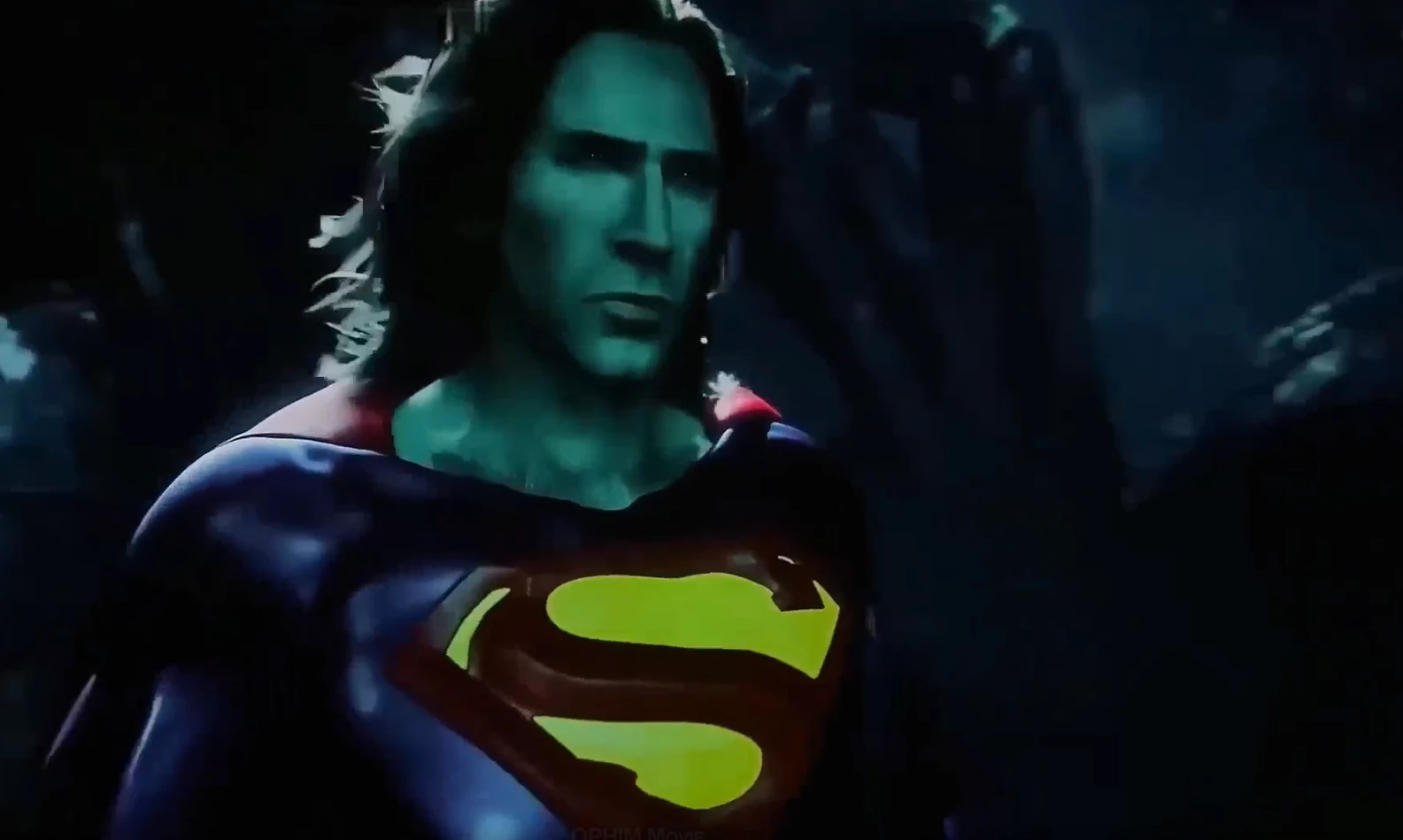 Source: DC Studios
Source: DC Studios
The same, however, cannot be said about The Flash. With the exception of 2013-Barry and Keaton’s Batman, the other variants in the movie weren’t put to good use. Most of them are only introduced at the end of the movie, as the Multiverse is collapsing from Barry’s time-traveling attempt.
DC tries to hype up the crowd by bringing in some iconic names such as Nicolas Cage, Christopher Reeves, and Helen Slater to play other-dimension Superman and Supergirl, but apart from that, they simply lack the uniqueness that the Spidey variants have. Their limited screen time didn’t do them any justice either, as they just wait for their imminent doom.
#3. The Flash’s plot and ending are too predictable.
 Source: Sony Pictures Entertainment
Source: Sony Pictures Entertainment
While focusing on expanding the Multiverse, Across the Spider-Verse still manages to deliver a stellar storyline, with multiple twists and turns and great character developments. The ending, especially, caught all of us off guard, by sending Miles to Earth-42 where there is no Spider-Man, as he got captured by the evil counterpart. The events in the movie also set up perfectly for what will happen in Beyond the Spider-Verse, which is a job well done by Sony.
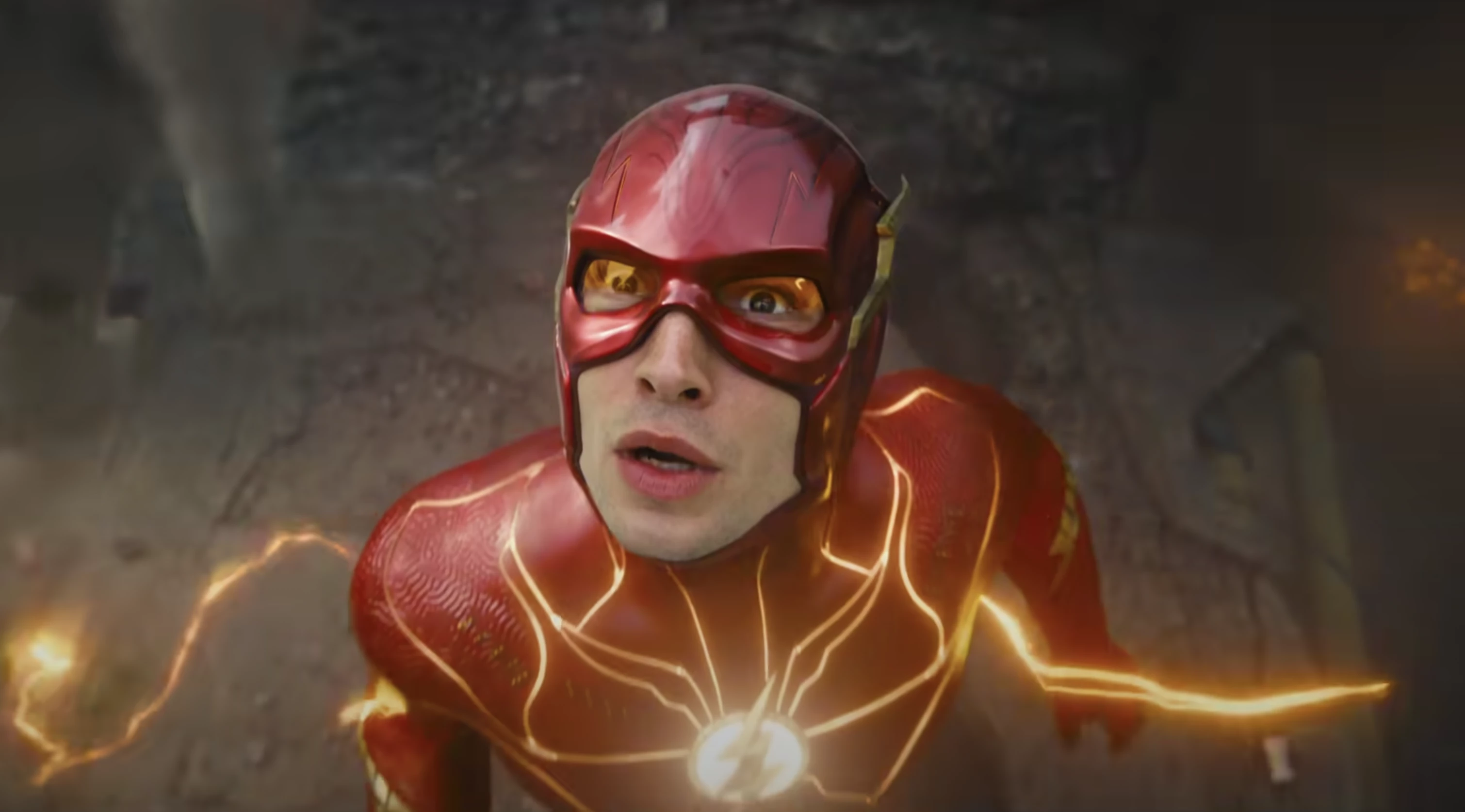 Source: DC Studios
Source: DC Studios
The Flash’s plot, while isn’t bad by any means, but they just pale in comparison to the animated sensation. Anyone who've read Flashpoint or is just familiar with the concept of the Multiverse, they’d know what happens in the end immediately: Barry Allen will realize that changing the past will only bring more casualties, so he will undo everything he did earlier, sacrificing his mom to save the Multiverse.
The inclusion of the Dark Flash, who’s actually the altered future version of 2013-Flash after time-traveling too many times, is actually a nice twist, but that alone can’t save an otherwise predictable storyline as a whole.
#4. General Zod and Dark Flash are good, but The Spot is simply superior.
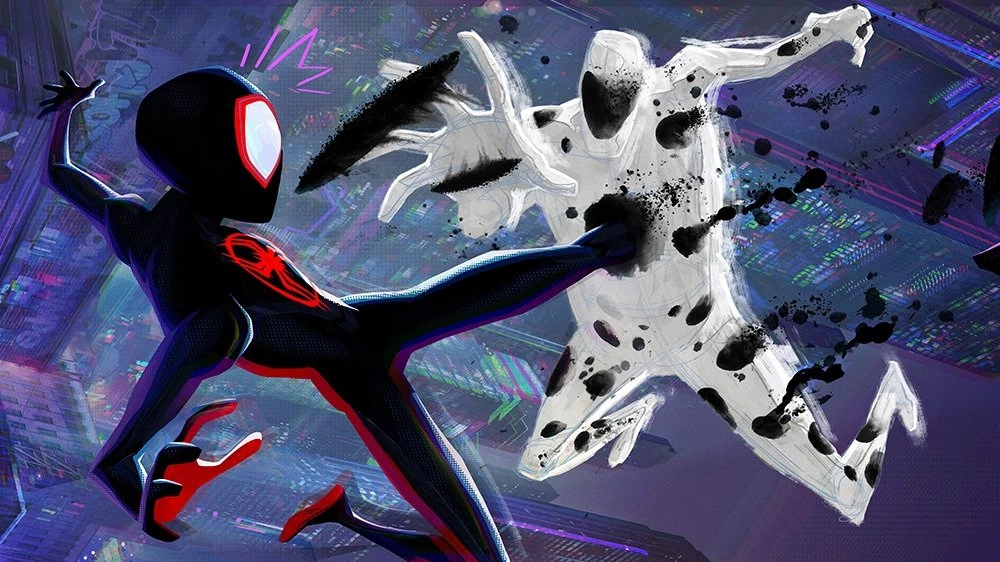 Source: Sony Pictures Entertainment
Source: Sony Pictures Entertainment
One of the most incredible things about Across the Spider-Verse, is that it manages to bring a second-rate comic villain into an absolute powerhouse in the movie. The Spot’s character development must be one of the best in the franchise, as not only his backstory is heavily tied to the prequel, but he also has undergone a massive change, from the “villain of the week” into the powerful entity who can destroy the balance of the Multiverse with ease.
 Source: DC Studios
Source: DC Studios
On the other side, Michael Shannon, while delivering a good display as the malevolent General Zod, his character is later overshadowed by the Dark Flash, who turns out to be the main villain of the movie. While the inclusion of the Dark Flash is a nice twist, the way he goes out was a bit underwhelming, as we expected a bigger fight between him and the current Barry Allen.
#5. Across the Spider-Verse is simply better in terms of visuals.
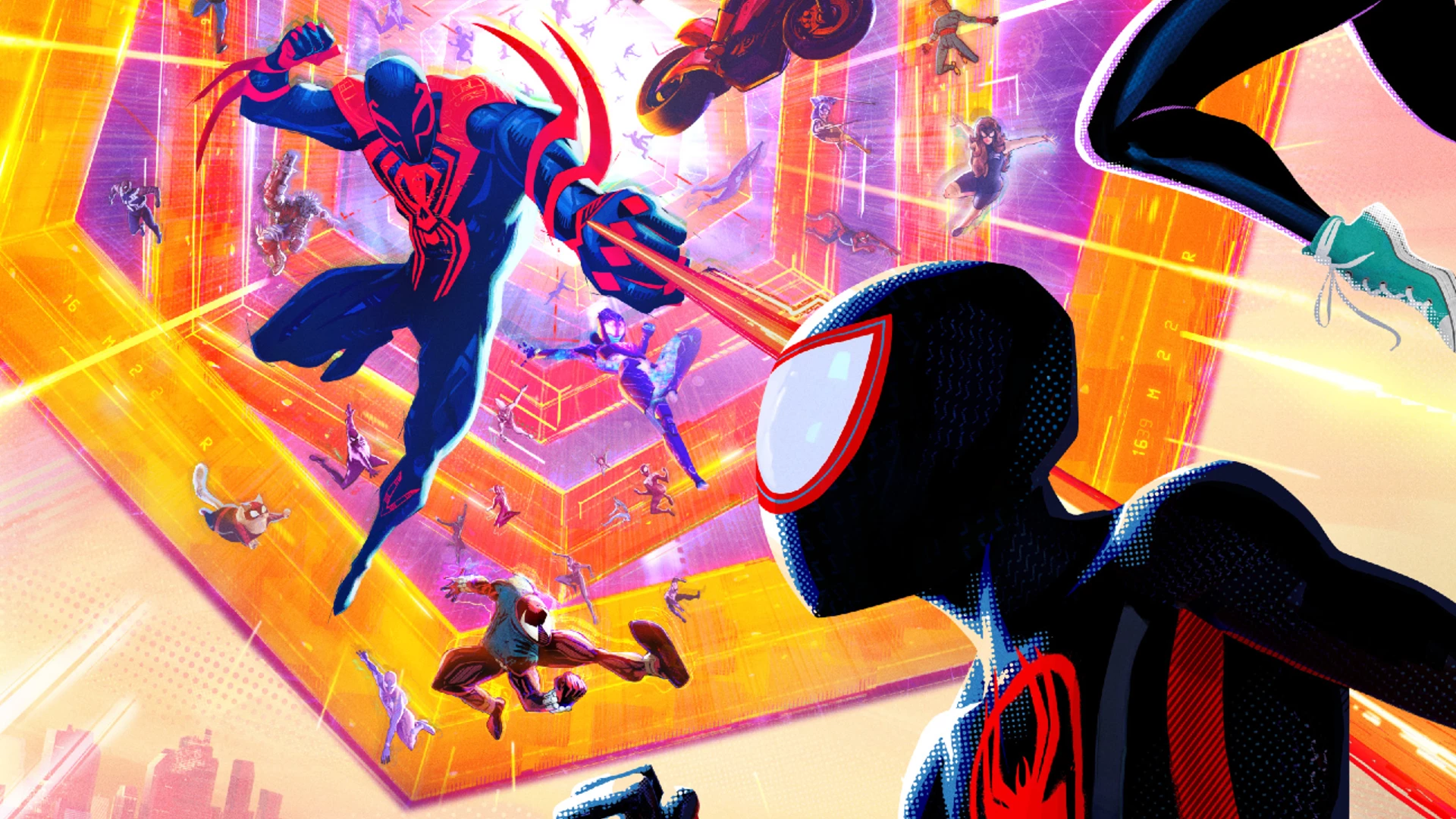 Source: Sony Pictures Entertainment
Source: Sony Pictures Entertainment
The audience has to wait 5 years for Across the Spider-Verse, and in return, they were treated with a mesmerizing display of stunning visuals and exceptional animation. The film successfully follows the prequel art style and brings it to a whole new level, and we can see how much work the animators put into every frame on the screen. Heck, they even used 3 years to animate Hobie Brown in multiple different frames from other characters. Talk about dedication.
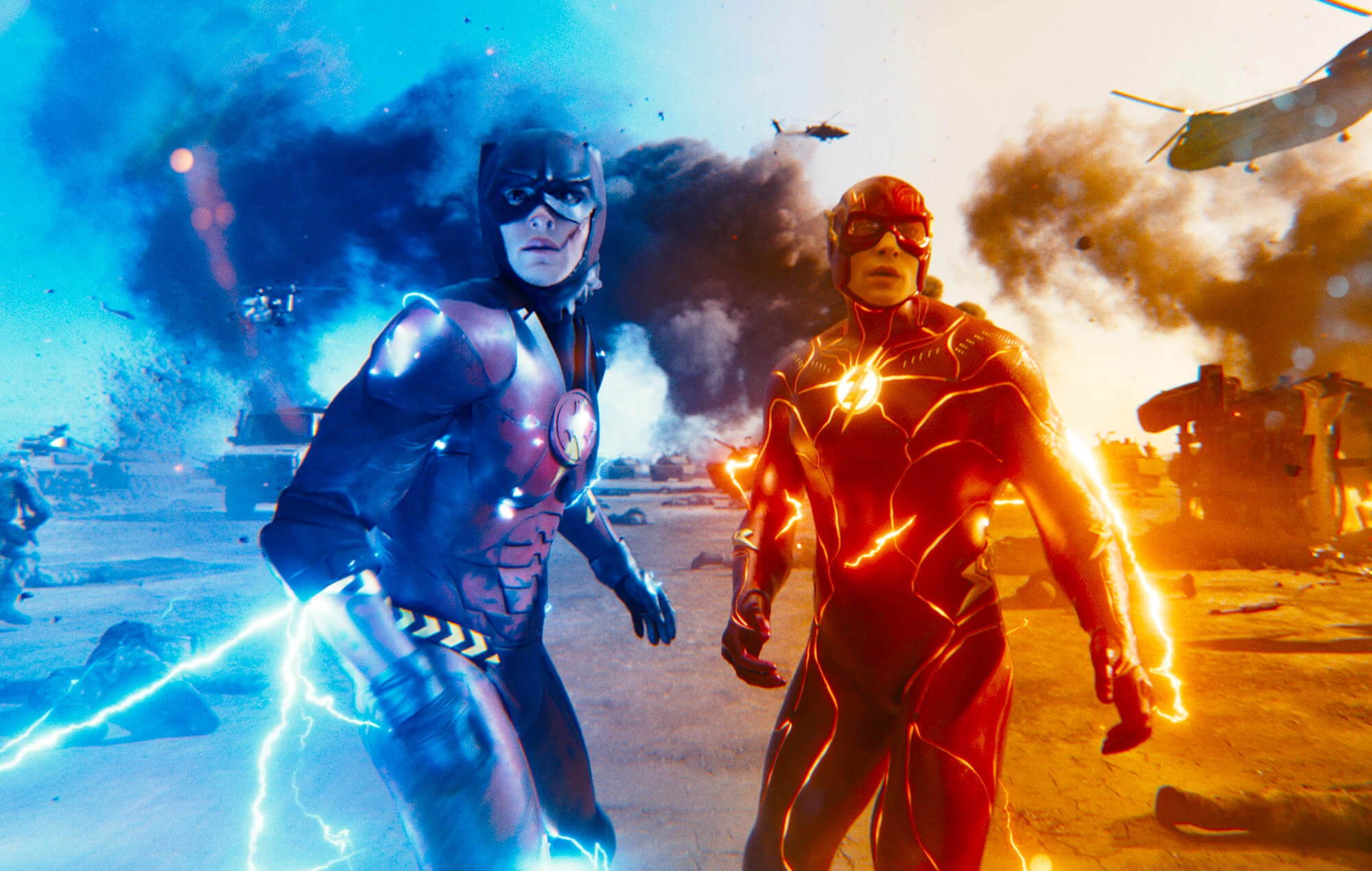 Source: DC Studios
Source: DC Studios
Meanwhile, The Flash is heavily criticized for the dodgy and amateurish CGI effects, with some even describing they “look worse than a 90s fiction movie”. The prime example of this backlash would be the scene where Barry saves the babies from the hospital, with the infants looking like they were made of a discounted 3D printer (The Flash even puts them in the microwave afterward, no less!)
#6. Across the Spider-Verse has a good foundation with its prequel and threequel.
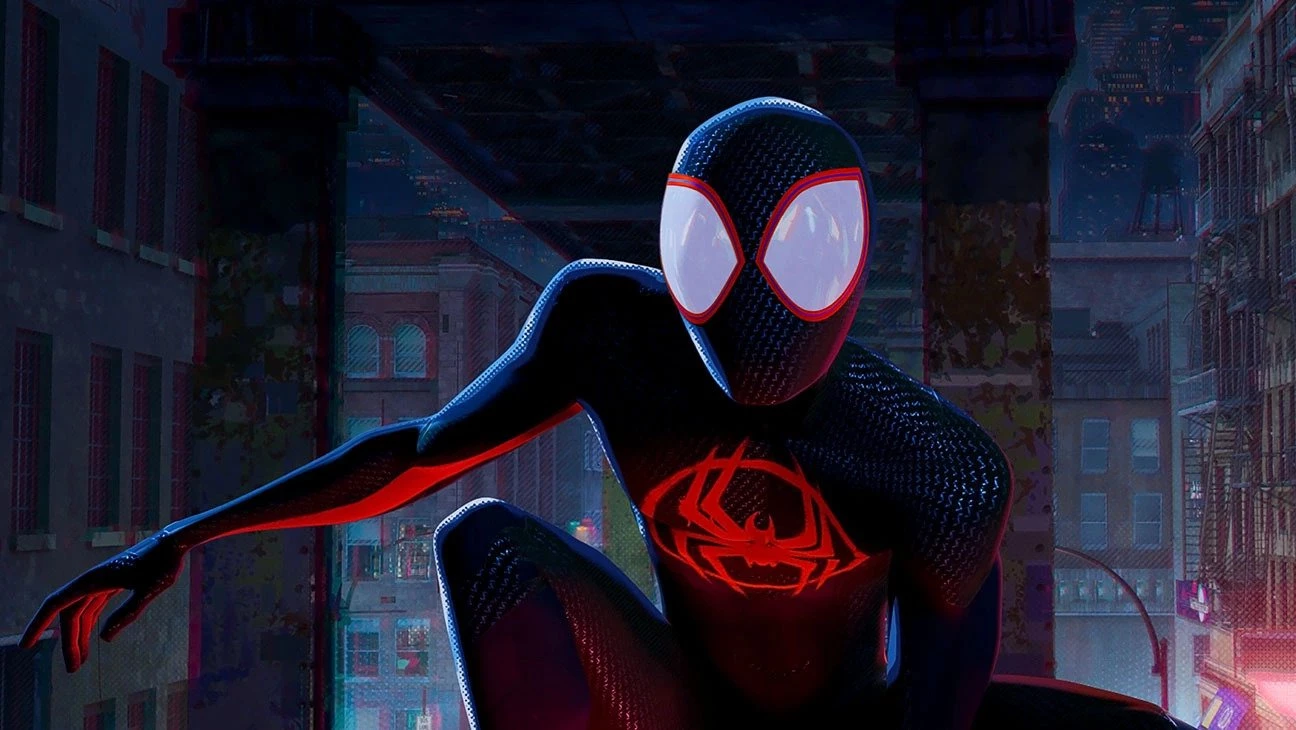 Source: Sony Pictures Entertainment
Source: Sony Pictures Entertainment
One of the most intriguing aspects of the superhero genre that keeps fans going to the theaters is its value of continuity. Across the Spider-Verse has done just that, as some of its important details are heavily linked with the first film, Into the Spider-Verse, for example, The Spot’s motive to become a villain, or how Miles becomes Spider-Man affects a whole different dimension. The cliffhanger at the end also sets up perfectly for the threequel Beyond the Spider-Verse, and there’s no doubt fans will keep paying money to see what the trilogy will unfold next year.
 Source: DC Studios
Source: DC Studios
The Flash, however, doesn’t have that same sense of continuity, as it’s one of the last movies of the DCEU before it gets entirely rebooted by James Gunn. Rather than opening up for new potential stories, the cinematic version about the Scarlet Speedster feels like an attempt by Warner Bros to conclude the current saga in style. And why would fans want to pay for tickets for a movie that doesn’t set up anything for future projects of the same universe?
#7. Across the Spider-Verse’s funny moments are actually funny.
 Source: Sony Pictures Entertainment
Source: Sony Pictures Entertainment
As an animated movie, Across the Spider-Verse are full of hysterical moments, which are slipped in nicely between the more intense sequences to ease up the tension without overdoing it. Aside from the class clowns like Pavitr or Peter B. Parker, even the more serious characters like Miguel or Jeff Davis have their funny moments as well.
The Flash, while tackling a much darker setting and storyline, also tries the same method to ease up things, but like most DCEU movies, their jokes are too light, bland, and forgettable to put up against an overall heavy plot.
#8. Across the Spider-Verse tends to attract more audience.
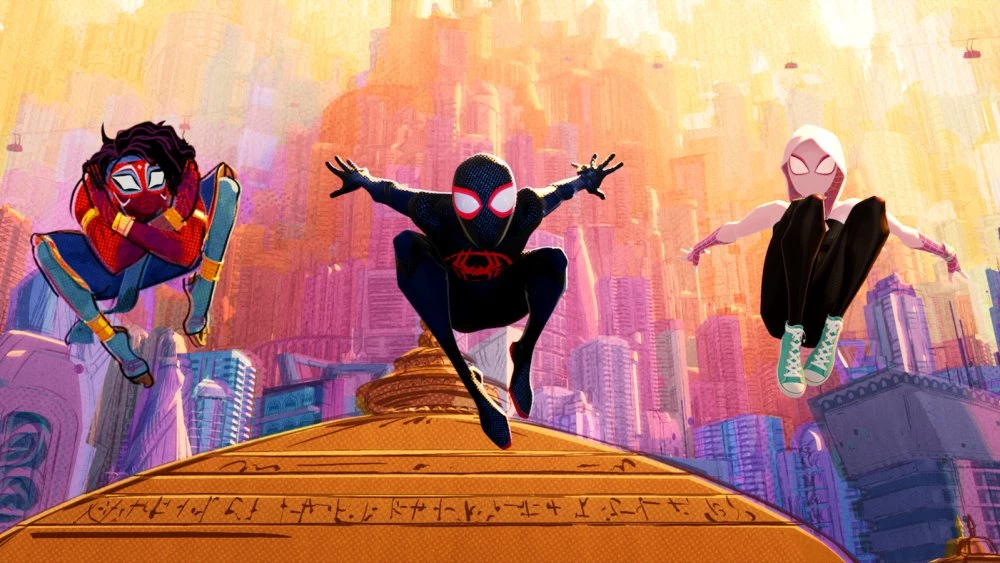 Source: Sony Pictures Entertainment
Source: Sony Pictures Entertainment
This might be a more minor aspect, but being an animated movie has given Across the Spider-Verse a huge advantage over its DC rival. The vibrant worlds and seamless unorthodox animation attract both kids and adults to the theater, while the soundtracks vary enough to please the audience’s ears. The Flash, however, with its trademark darker tone in both terms of coloring and setting, finds it hard to attract casual and younger fans to the box office.
Which movie do you think is better: Spider-Man: Across the Spider-Verse, or The Flash? Why? Share your thoughts in the comment below.